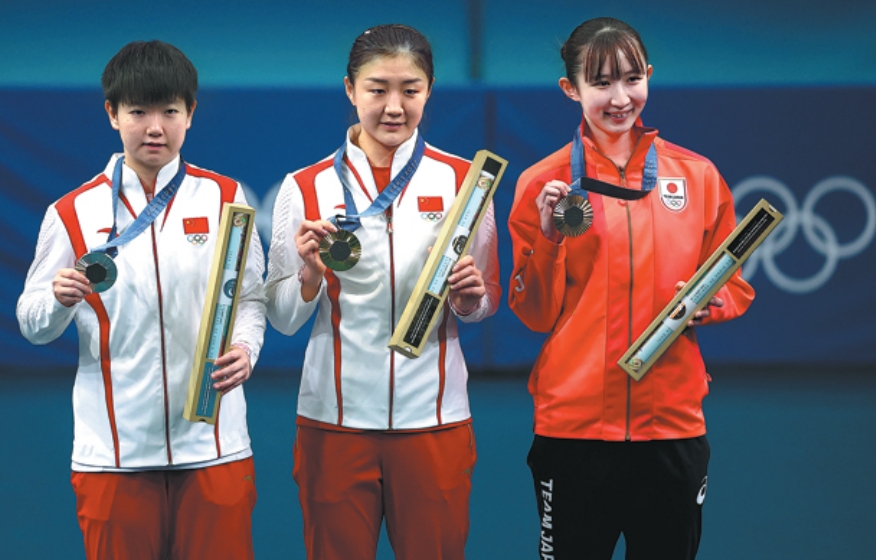Overly fervent fans not good for image of sport


It should have been good news for the Chinese table tennis team that two Chinese players, Sun Yingsha and Chen Meng, competed in the final of the women's table tennis at the Paris Olympics on Saturday.
However, what was unexpected was that some extreme fans of Sun started attacking and smearing Chen the moment their idol lost the game 2-4.
With unexpectedly perceivable ease, Chen beat Sun, who was apparently not in a good frame of mind during the game for unknown reasons. In a repeat of the final Tokyo Olympics three years ago, Chen, who ranks fourth after the match with a score of 5,290 in the International Table Tennis Federation ranking for women players, beat her strong teammate, who is six years younger, and ranks No 1 in the world with a score of 8,100, to defend her Olympic title.
Sun, who is known for her comprehensive skills, steady performances, strong will to win and humility, has made remarkable progress over the past three years — between the finals in Tokyo and Paris, she defeated Chen nine times and lost twice — during which time she has gained a large number of fans at home and abroad.
Reportedly, it was Sun's fans that were not only behind the large-scale stigmatizing on the internet targeting Chen but also booed the latter when she stepped on the podium to receive the gold medal, when most members of the Chinese table tennis team at the stadium were caught by the camera in a studied collective silence.
On Sunday, Sina Weibo, a Chinese microblog platform, had to act to clean up more than 12,000 comments and ban more than 300 accounts that it deemed violated its rules. Whether the dust of the storm can be settled remains to be seen, but this is undoubtedly a typical example showing how "fan club culture", as some argued, has gone to extremes eroding the sport's standing.
The "fan club culture" originates from the entertainment industry, which stresses strong adhesion between fans and stars, thereby increasing the commercial value of stars. The profit-seeking and traffic-first operation can easily lead star-chasing to fanatical idol worship. The members of the "fan club" are different from common sports fans, as the former are strongly exclusive and ready to attack those that they deem don't share their devotion to their idol.
The key lies in whether the sports authorities and sports associations can guide and transform the healthy development of the "fan club culture" in a timely manner and cultivate a healthy fan culture. Real sports fans love their favorite players but they also respect their opponents and recognize and cherish sportsmanship and fair competition.
BEIJING NEWS

































